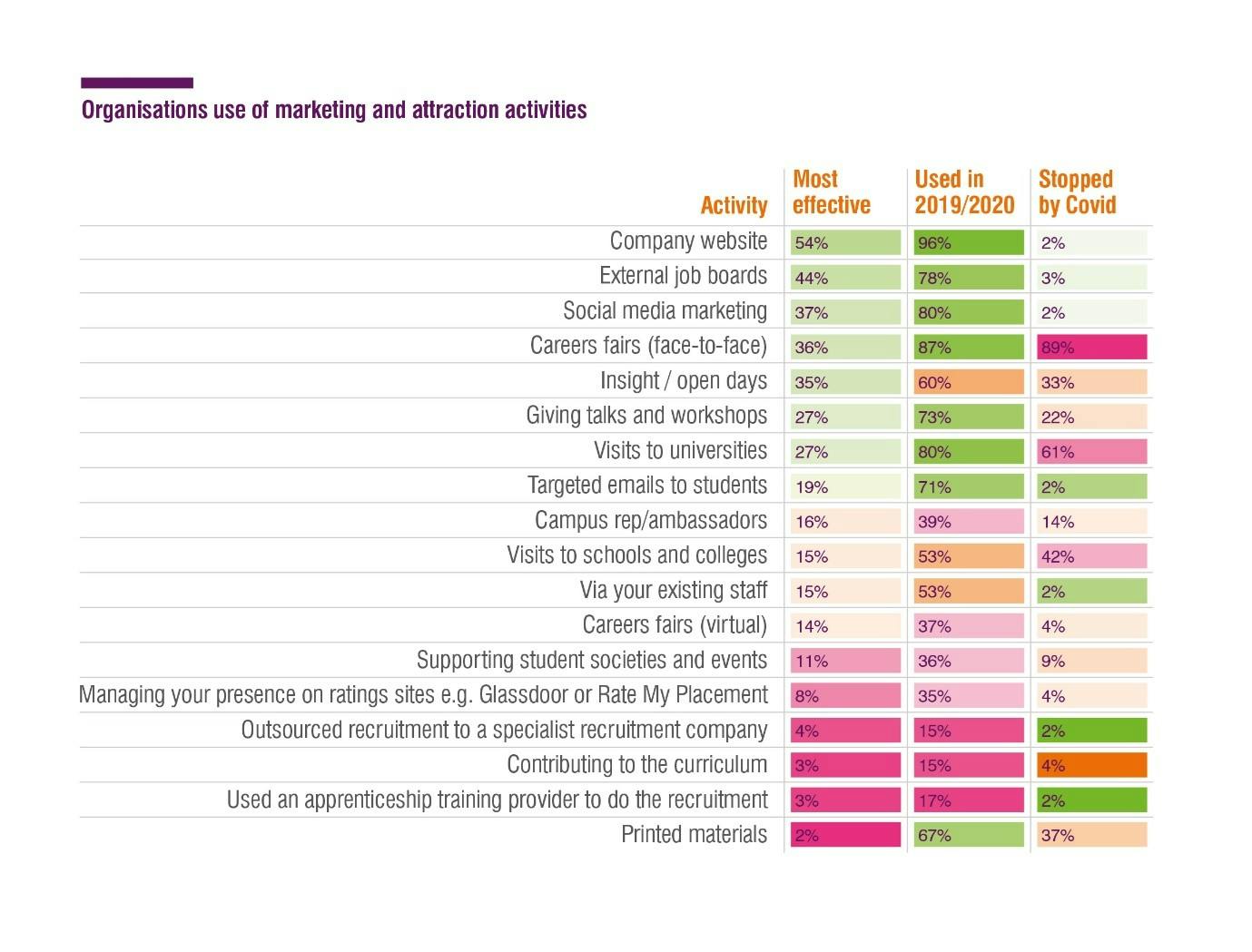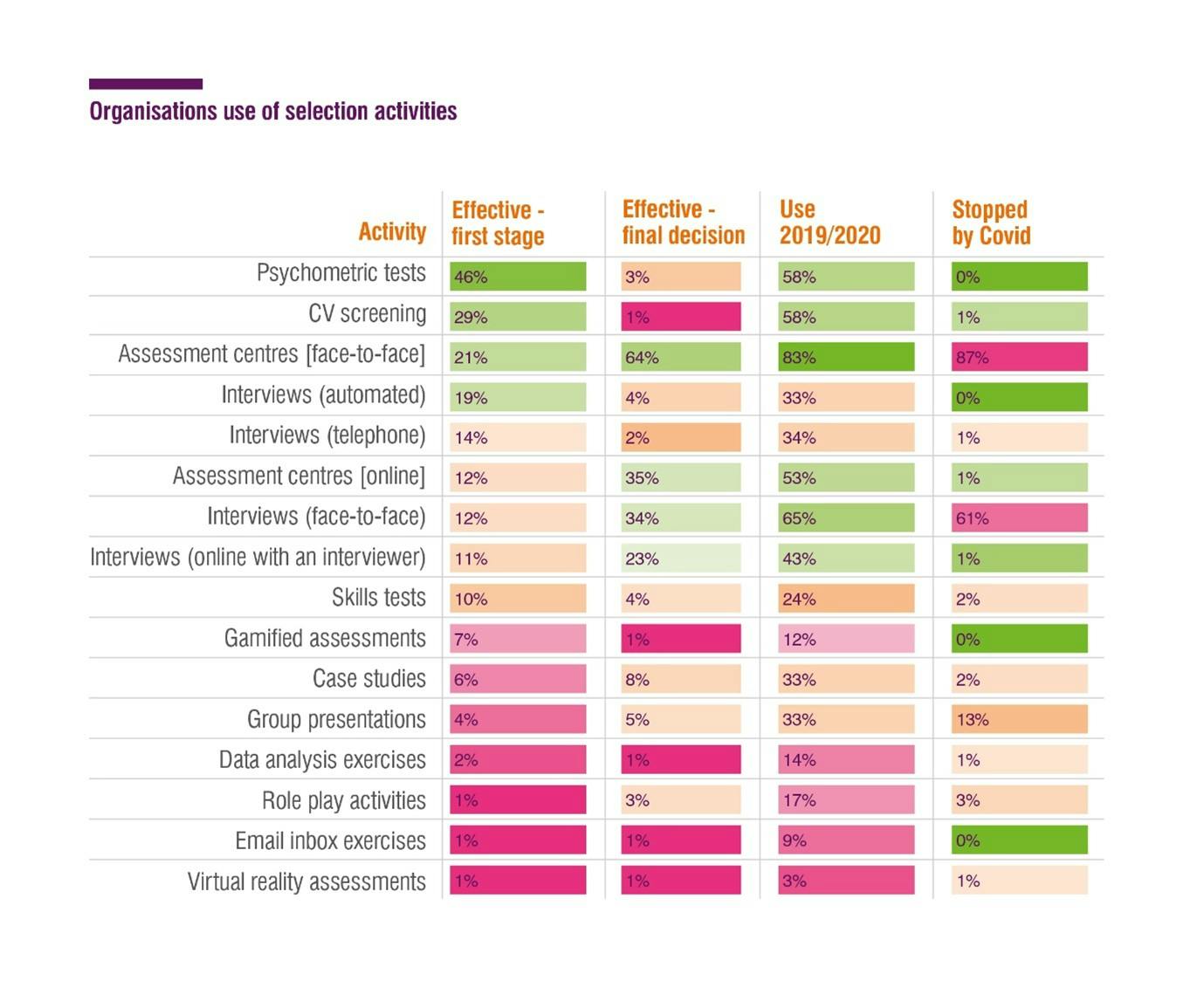The Institute of Student Employers' annual Student Recruitment Survey shows how the pandemic has forced graduate recruiters into making some rapid changes to their recruitment approaches - as Tristram Hooley explains
Graduate recruitment is always changing. It has had to respond to the massification of higher education, embrace new selection technologies like video interviewing and virtual reality assessments, and increasingly to respond to concerns about the diversity of the results that it produces. All of this has made for a dynamic field that we have monitored carefully over the last few decades in ISE surveys. But, then along came 2020 and the level of dynamism had to step up a gear.1
Creating strategy as you go
No organisations started the 2019/2020 recruitment season with a plan to radically overhaul their approach. But, as the pandemic began to impact on recruitment programmes from March, people had to start to make some big changes. This has stimulated an intense period of creativity from employers, which is likely to end up as more than just a tactical response to the crisis. Experiments that are taking place under pressure may be solidifying into a new normal.
The year has revealed that despite organisations' social media strategies and commitment to e-recruitment, by early 2020 the activity of graduate recruitment was still highly dependent on face-to-face interactions. But, it has also revealed that a more fully e-recruitment approach is possible.
When it comes to selecting who to employ, there is enthusiasm to get into the same room as students and look them in the eye.
How attraction is changing
To successfully recruit, organisations have to engage students and attract applications from them. Normally this requires the use of face-to-face, print and online marketing as well as deeper forms of engagement with education. While the pandemic disrupted many of these activities, the fact that it did not hit until March meant that many organisations had already completed most or all of their campaign. However, they are now grappling with the challenge of moving attraction online in 2020/2021 in the light of ongoing social distancing rules.
Organisations use a wide range of different techniques for marketing and attraction. In the Institute of Student Employers annual Student Recruitment Survey we asked about their use of these techniques and the figure shows how likely they were to use them and how they rated their effectiveness. We also asked them to indicate which of these activities had been disrupted by COVID-19.

Last year employers rated visits to universities as the most effective approach to recruit candidates. But, this year online attraction was seen as most effective with employers rating company websites, external jobs boards and social media marketing as the best approaches. These approaches were all in common use and have been minimally affected by the pandemic. The next most popular approaches: face-to-face careers fairs, insight or open days, giving talks and workshops and visits to universities have all been disrupted by the pandemic.
It is clear that many employers are experimenting with new approaches to attraction that combine online delivery with some of the advantages of face-to-face events.2 During the 2020/2021 recruitment season students should expect to see very little face-to-face activity, with most marketing and engagement activities delivered online. It remains an open question as to what will happen if, and when, we move beyond the pandemic. But, based on the current level of engagement and investment from employers it seems likely that online approaches are here to stay and that a return to pre-2020 levels of face-to-face activity are unlikely. So, you could have already attended your last careers fair in a sports hall!
How selection is changing
All employers use a range of different selection approaches to identify the candidates that they want to employ. We asked employers which activities they had been using over the last year and what was most effective in the first stage of selecting candidates and in making the final decision. We also asked about which selection activities had been stopped by COVID. The figure below sets out the findings.

Respondents indicate that they find psychometric tests, CV screening, face-to-face assessment centres and automated interviews to be the most effective ways to narrow down the field of applicants. Of these, face-to-face assessment centres have been the most disrupted by the pandemic.
To help them to make their final decision about who to hire, respondents indicate that they would ideally use face-to-face assessment centres and face-to-face interviews. But many of these have switched to online interviews and assessment centres. There is less enthusiasm about the effectiveness of the online alternatives than the face-to-face versions, but these online selection techniques are still viewed as effective in making final selection choices by a substantial minority.
With attraction activities it is possible to imagine a long-term shift to online approaches. But, when it comes to selecting who to employ, there is enthusiasm to get into the same room as students and look them in the eye. While the pandemic seems to have exacerbated the existing trend of the first stage of recruitment being conducted largely online, at the moment many employers are looking on a fully online process as being second best. Consequently and we might expect some return to face-to-face interviews and assessment centres once the pandemic is over.
Having said that, it is difficult to make predictions about the future in the current environment. We may still be surprised about how graduate recruitment evolves over the next five years.
Notes
- Student recruitment survey 2020: Challenge and resilience in the year of Covid-19, ISE, 2020.
- It's virtually autumn: A campus engagement guide for employers, ISE, 2020.
The views and opinions expressed in this article are those of the author(s) and do not necessarily reflect the position of Prospects/Jisc
Was this page useful?
Thank you for your feedback
